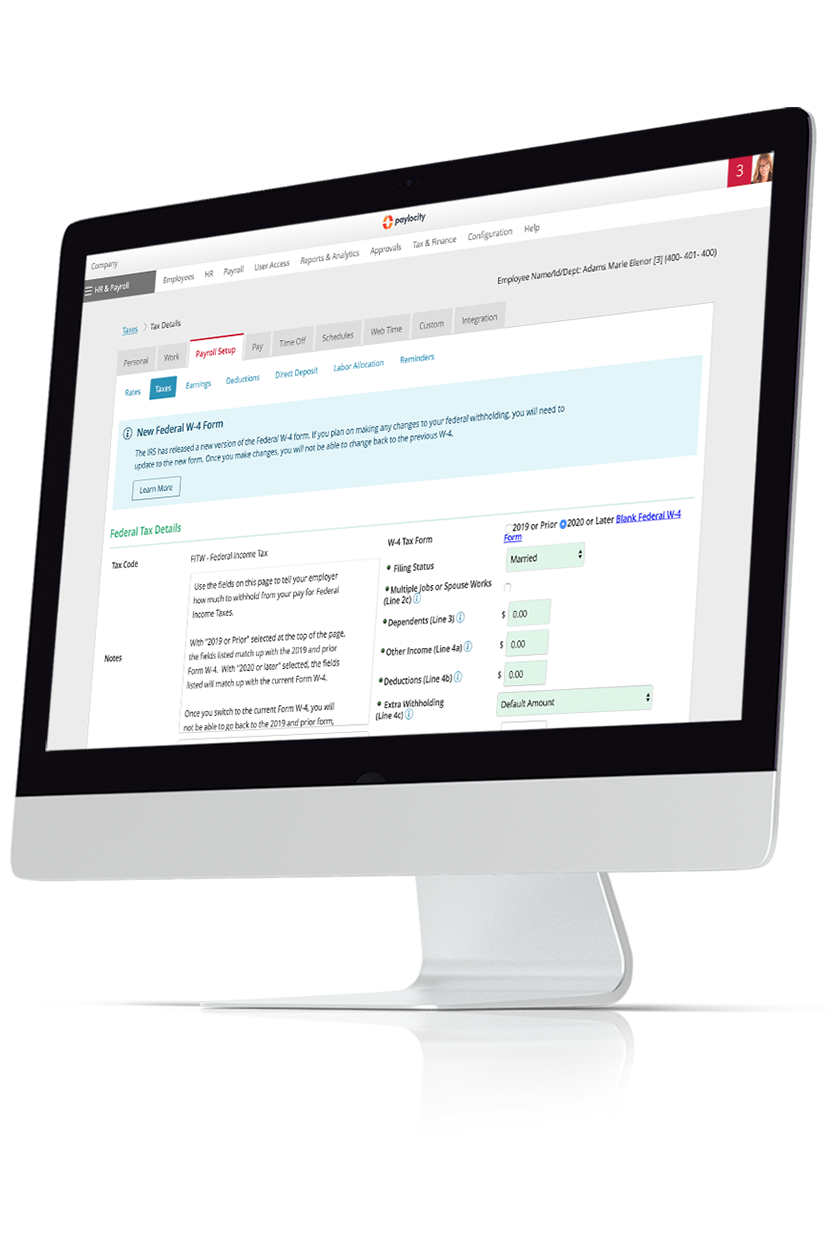Oregon Payroll Tax Facts
July 01, 2025
Having to comply with unique state taxes and wage laws can make processing payroll doubly daunting. Here’s everything you need to know about these rates and laws for the state of Oregon.

Oregon requires minimum wage rates that are substantially higher than the rates required by the federal government in the Fair Labor Standards Act (FLSA). In fact, the rate required in the Portland metro area is over double the FLSA rate.
The state also has multiple programs for protected sick leave and family leave, though not all of these programs provide wage reimbursement.
When it comes to processing payroll, Oregon-based organizations must handle the following taxes in addition to those required by the federal government:
- Personal Income (a.k.a. State Income Tax)
- State Unemployment Insurance (SUI)
- Paid Family and Medical Leave (PFML)
- State and Local Transit Services
- Workers' Benefit Fund Assessments
The below information was last updated July 1, 2025. It is not intended as legal or tax advice.
Oregon Payroll Tax Rates
Oregon State Income Tax (SIT)
Oregon's SIT is progressive, meaning it adjusts based on the income level of the employee paying the tax:
| Filing Status | Income Tax Bracket* [Over X] - [But not over Y] |
2025 Income Tax Rate |
| Single / Married (filed separately) | $50,000 - $125,000 | $4,090 + 8.75% of excess over $50,000 |
| $125,000 or greater | $10,652 + 9.90% of excess over $125,000 | |
| Head of Household / Married (filed jointly) | $50,000 - $250,000 | $3,805 + 8.75% of excess over $50,000 |
| $250,000 or greater | $21,305 + 9.90% of excess over $250,000 |
*If your annual income is less than $50,000, use the state's Tax Tables for Form OR-40 to find your tax rate.
|
Additional Oregon SIT Details |
|
|
Supplemental Withholding Computation |
8.0% |
|
Valid Filing Statuses |
|
|
Exemptions |
Number of allowances |
|
Form W-4 |
Form OR-W-4 |
|
Reconciliation Frequency |
Quarterly |
Oregon State Unemployment Insurance (SUI)
SUI provides unemployment benefits to eligible workers who are unemployed through no fault of their own (as determined by state law) and meet the state’s eligibility requirements.
|
Oregon SUI Tax Details |
|
|
Taxable Wage Base |
$54,300 |
|
Employee Subject to Tax |
No |
|
Rates for Experienced Employers |
0.9% - 5.4% |
|
Rates for New Employers |
0.109% |
|
Effective Period |
Calendar Year |
|
Voluntary Contributions Allowed |
No |
|
Special Payroll Tax Offset Rate |
|
Oregon State Disability Insurance (SDI)
SDI benefits are funded by employees through mandatory payroll deductions from each paycheck. Oregon, however, doesn't require employers to collect an SDI tax.
Oregon Paid Sick Leave (PSL) Tax
The state of Oregon doesn't require employers to collect PSL taxes, but it does have a program providing such leave to eligible employees:
| Oregon PSL Details | |
| Covered Employers | Any with ten or more employees within the state |
| Covered Employees | Any full-time and part-time salaried, hourly, commissioned, and piece-rate employees, as well as home care employees who provide hourly or live-in care to the elderly or disabled and receive money from the state’s Department of Human Services |
| Accrual Method(s) | One hour per 30 hours worked |
| Annual Accrual Maximum | 40 hours |
| Carryover Maximum | 40 hours |
| Total Accrual Maximum | 80 hours |
| Frontloading Allowed | Yes |
| FAQs | Paid Sick Leave |
Oregon Paid Family and Medical Leave (PFML) Tax
Like SDI, Oregon's Paid Leave (PL) program is funded via mandatory payroll deductions.
| Oregon PL Details | |
| Covered Employees | Those who work in Oregon and earned at least $1,000 the year before they apply for leave |
| Covered Employers | All |
| Tax Rate | 1% of an employee's gross wages* |
| Wage Base Limit | $176,100 |
| Maximum Leave Available | 12 weeks (or 14 if the leave is pregnancy-related) |
| Wage Replacement | Varies based on employee's average weekly wage from the prior year (can go up to 120% of the state's average weekly wage) |
| FAQs | Paid Leave Oregon FAQs |
*Large employers with 25 or more employees provide 40% of this amount, while their employees cover the remaining 60%. Small employers with fewer employees don't have to share this tax with employees but may choose to if they wish.
Oregon Family Leave Act (OFLA) Tax
The state of Oregon doesn't require employers to collect OFLA taxes, but the Act does provide protected, unpaid leave to employees.
| Oregon FLA Details | |
| Covered Employees | Those who worked an average of 25 hours per week for 180 days |
| Covered Employers | Those with 25 or more employees |
| Maximum Leave Available | 12 weeks |
| Wage Replacement | None |
| FAQs | OFLA FAQ |
Oregon Workers' Benefit Fund Tax
The Worker's Benefit Fund helps provide return-to-work assistance, benefits to permanently and totally disabled workers, and benefits to family members of workers who die from workplace injuries or diseases.
Employers and employees split this payroll tax evenly, at a rate of $0.22 per hour the employee worked. Employers can choose to pay the collected amounts to the state annually or every quarter.
Oregon Transit Tax
The state and several local areas also require transit taxes, which vary based on where an employee works. While the 0.1% statewide transit tax is paid by resident and nonresident employees working in Oregon, the local versions are covered by employers as a percentage of the employee's gross wages:
| Transit Tax Details | |
| Canby |
0.60% |
| Lane | 0.80% |
| Sandy | 0.60% |
| South Clackamas | 0.50% |
| Tri-Met | 0.8237% |
| Wilsonville | 0.50% |
Miscellaneous Oregon Tax Information
Oregon Quarterly Combined Tax Report
Oregon uses a combined tax report (Form OQ) for employers to calculate and remit the following taxes each quarter:
- SIT and SUI
- Transit taxes
- Paid Family and Medical Leave taxes
- Workers' Benefit Fund
Employers often submit Form Oregon Schedule B and Form 132 (Employee Detail Report) with a Form OQ submission. Refer to the state's Combined Payroll Tax Report Instructions for more information on all three forms.
- Oregon Schedule B Form - Used if SIT deposits must be submitted semi-weekly or on a one-baking day basis.
- Form 132 - Reports the total gross wages of each Oregon employee.
Oregon Reciprocal Agreement(s)
Reciprocal agreements are when workers who live and work in different states are only required to pay taxes to the state where they live. Oregon currently has no reciprocal agreements with any other states.
This doesn't mean, however, that interstate workers living in Oregon pay double. It’s federally illegal for two states to tax the same income. In most cases, the employee’s work state will credit or refund them at tax time based on the taxes they owe their home state. If the tax rates differ, the employee must cover the difference.
Oregon Minimum Wage Rates
|
Wage Type |
Oregon Rates |
Federal Rates |
|
Minimum Wage |
$14.05 (non-urban counties) |
$7.25 |
|
Tipped Minimum Wage |
N/A |
$2.13 |
|
Actual Tip Credit |
N/A |
$5.12 |
In addition to the state-wide minimum wage rates above, the city of Portland also has a minimum wage rate of $16.30.
Paying Payroll Taxes in Oregon
Oregon Employer Registration
The agencies below can help with your state-based employer registration, including best practices, account numbers, and unemployment information. Contact the Department of Revenue for withholding tax topics and the Employment Department for unemployment tax topics.
|
Registration Details |
Department of Revenue |
Employment Department |
|
Phone |
(503) 378-4988 | (503) 947-1488 |
|
Online Registration |
Revenue Online Homepage | |
|
Registration Form |
Form-OR-CER | |
|
Registration Instructions |
Online and paper registration options are available. Account numbers will be issued during the online process or 2-4 weeks via mail. Identical account numbers for each tax type will be issued under a combined registration. |
|
|
Employer Self-Service Login |
Revenue Online Homepage | Frances Online Login Page |
Additional Oregon Payroll Tax Resources
- Additional Business Registration Forms
- Additional Employment Department Business Tax Forms
- Business Startup Toolkit
- Business Tax Portal
This information is provided as a courtesy and may be updated at any time. It is not intended as legal or tax guidance. If you have questions or concerns, we encourage you to seek the advice of a qualified CPA, tax attorney, or advisor.

Get Taxes Done Right, Without the Stress
We know there's a lot that goes into preparing and filing payroll tax forms. Save time and get support from our expert team. As a Registered Reporting Agent with the IRS, we can help prepare and file all the necessary forms you need to remain compliant - even in the face of changing legislation. Learn more here.